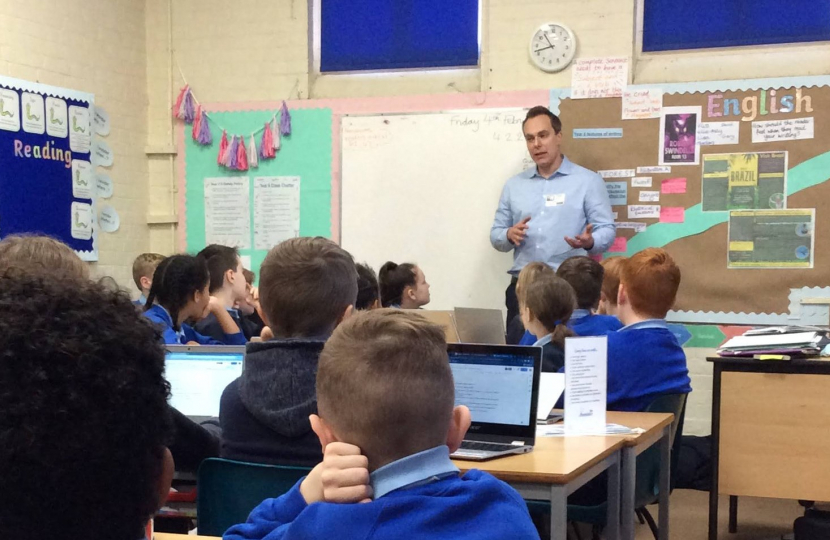
Attention is largely – and rightly – on Ukraine and the cost of living at the moment. But alongside this, important policy reforms are taking place, not least in one of the areas I’ve spent most time on: education.
In the Schools White Paper last month, the Government set out a range of commitments it is making to improve the standard of education for all children, but particularly those who do not receive a good standard already. An important part of this is the parent pledge, where if children fall behind in English or Maths they’ll be entitled to additional support, whether small group tutoring or extra online classes.
It’s underpinned by a target to go from 65% of primary aged children reaching the expected standard of reading, writing and maths to 90% by 2030.
During Covid, there was much discussion of whether there should be a longer school day - something I have supported over the years - but analysis found that a significant number of schools already have a shorter day on at least one day of the week, so they will all be required to provide a 32.5 hour week from 2023.
The Government wants all schools to be in a strong chain of schools by 2030 so they can benefit from sharing expertise and resources and is increasing the starting salary for teachers to £30,000 by 2024 so schools can compete with other employers.
The complement to the White Paper is the Special Educational Needs and Disabilities Green Paper. All MPs have casework relating to children with SEND as the system does not work in the way it should. The Government intends to see more children kept in mainstream schools (which evidence shows, if suitable for the child, leads to better education and employment outcomes) and to create a simpler, less bureaucratic process for children to get the support they need.
Typically a large amount of money in each county goes on a small amount of children with others unable to get the help they need, so the Government will work to put the system on a firmer financial footing and make better use of alternative provision from an early stage.
Then there is also a change in our approach to skills, reducing the focus on everyone going to university (and doing degrees that may help them), with more funding for skills training and degree apprenticeships and a greater role for employers in shaping the courses offered in local areas.
There’s much more besides. It won’t make the front pages, but the changes have the potential to change the outcomes of many young lives.
